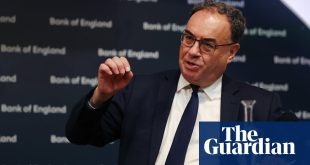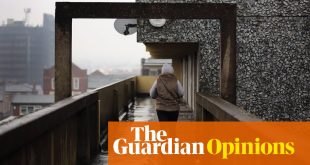Retailers are warning of further disruption on Britain’s high streets from shortages of stock caused by Covid and Brexit, after official figures revealed an unexpected fall in sales last month.
Helen Dickinson, chief executive of the British Retail Consortium, said there were mounting problems for the industry after a month when a hoped-for rise in spending following the end of most pandemic restrictions failed to materialise.
“Retailers are keen to see growth continue throughout the second half of 2021, yet there are headwinds looming on the horizon,” she said, warning that new Brexit trade barriers due in October could worsen the outlook for high street shops.
“Challenges in global shipping and the shortage of UK lorry drivers are creating some disruption for consumers and additional costs for retailers. Government must take action on these issues, increasing the number of HGV driving tests taking place and ensuring new EU-GB documentation checks are as light touch as possible.”
The warning comes after the Office for National Statistics said retail sales in Great Britain suffered a sharp unexpected fall in July, after a mini-boom during football’s European Championship a month earlier.
According to the latest snapshot, sales volumes fell by 2.5% between June and July as spending declined across much of the high street and food sales fell after the end of the tournament. City economists had forecast a modest 0.4% rise on the month.
The drop in sales also came as consumers raised their spending in pubs, cafes, and restaurants at the expense of shopping for food and drink in supermarkets after the easing of coronavirus restrictions across the country.
Sales fell across almost every category, with a 4.4% drop in non-food stores, driven by weaker sales in clothes shops, secondhand stores and spending on computers and telecoms.
In a potential sign that supply shortages caused by Covid-19 and Brexit are having an impact on retail sales, the ONS pointed to Bank of England evidence that showed there had been delays to shipments of electrical goods in recent months. It comes amid concern over the impact of “pingdemic” staff shortages, and as Covid and Brexit disrupt international trade.
Heavy rainfall in early July also led to a fall in spending on fuel at petrol stations by 2.9% on the month amid a decline in traffic on Britain’s roads.
Despite the decline on the month, retail sales remained almost 6% higher than pre-pandemic levels. Online sales also rose slightly on the month to 27.9%, and remain substantially higher than the 19.8% level recorded in February 2020 before the first Covid lockdown.
Analysts said it was too early to tell whether the spread of the coronavirus Delta variant would have a prolonged impact on spending, saying the dip in July probably marked the end of an initial buzz after shops reopened and as more consumers returned to eating out and socialising.
“We’ve seen no discernible fall in spending at hospitality venues recently despite hundreds of thousands of people having to self-isolate each week in July,” said James Smith, an economist at the Dutch bank ING. “That suggests Delta hasn’t triggered a major shift in consumer appetite to socialise so far, though we suspect this may become more noticeable over the winter.”
Separate figures from the ONS showed a bigger than expected improvement in the government’s finances, with a £10.1bn drop in public sector borrowing in July compared with the same month a year earlier.
The government’s budget deficit – the gap between spending and income – fell to £10.4bn, amid a fall in the number of workers on furlough and a rise in self-assessed income tax receipts. City economists had forecast borrowing of almost £12bn.
Sign up to the daily Business Today email or follow Guardian Business on Twitter at @BusinessDesk
It comes as Rishi Sunak weighs options for the spending review this autumn, which sets out funding for Whitehall departments. The chancellor said the latest borrowing figures showed the UK’s economic recovery from the pandemic was “well under way, boosted by the huge amount of support government has provided”.
However, he added: “But the last 18 months have had a huge impact on our economy and public finances, and many risks remain.
“We’re committed to keeping the public finances on a sustainable footing, which is why at the budget in March, I set out the steps we are taking to keep debt under control in the years to come.”
 Top Naija News: Nigerian News, Breaking News Nigeria and World News Top Naija News is a daily news publication in Nigeria, delivering the latest breaking news in Nigeria and around the world.
Top Naija News: Nigerian News, Breaking News Nigeria and World News Top Naija News is a daily news publication in Nigeria, delivering the latest breaking news in Nigeria and around the world.



